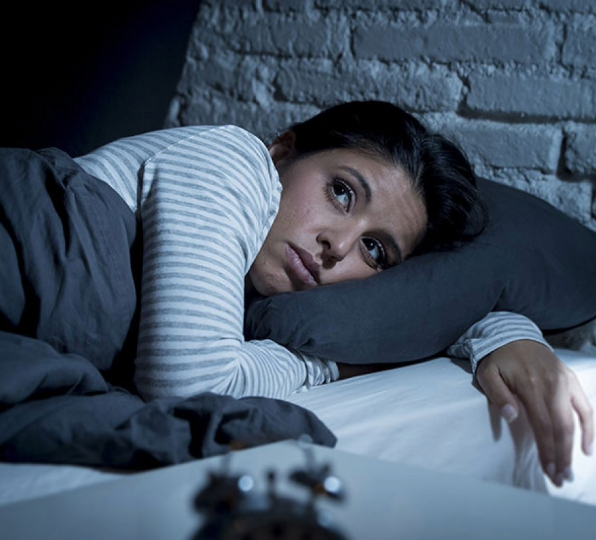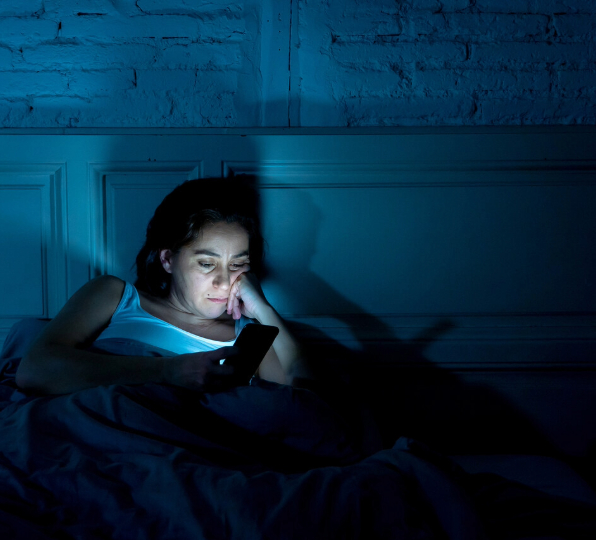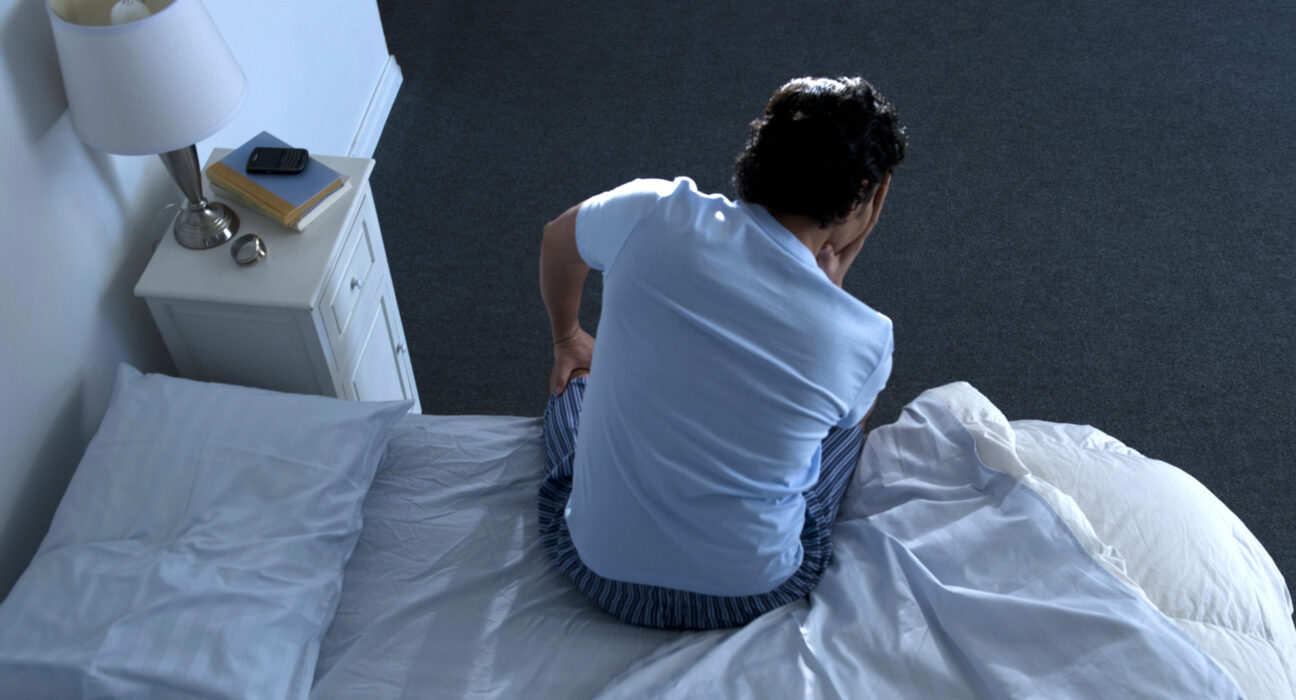Introduction:
Extreme mood swings, such as manic episodes of high mood and energy and depressive episodes of low mood and energy, are hallmarks of bipolar disorder, a complex mental health condition. In addition to mood swings, sleep issues are common in people with bipolar disorder, which can worsen symptoms and affect general wellbeing. This blog post will discuss the connection between bipolar disorder and sleep issues, typical sleep disruptions linked to the illness, and methods for handling sleep issues to promote stability and mental health.
1. The Relationship Between Bipolar Disorder and Sleep
The relationship between bipolar disorder and sleep is complex, with sleep disturbances being common features of the condition. Bipolar disorder is characterized by recurrent episodes of mood changes, ranging from manic or hypomanic episodes (periods of elevated mood, increased energy, and impulsive behavior) to depressive episodes (periods of low mood, loss of interest or pleasure, and feelings of worthlessness or guilt). Disruptions in sleep patterns can play a significant role in triggering mood episodes and exacerbating symptoms of mania or depression, contributing to the cyclical nature of the disorder.
Sleep disturbances in bipolar disorder can manifest in various ways, including alterations in sleep quantity, sleep quality, and sleep-wake patterns. Individuals with bipolar disorder may experience periods of insomnia, where they have difficulty falling asleep, staying asleep, or waking up too early in the morning. Conversely, they may also experience periods of hypersomnia, where they sleep excessively and feel excessively tired during the day. These sleep disturbances can occur during both manic and depressive episodes and may persist even during periods of euthymia (a stable mood state).
Disruptions in sleep patterns can have profound effects on mood regulation and emotional stability in individuals with bipolar disorder. Sleep deprivation, in particular, has been shown to trigger manic episodes and worsen symptoms of mania, such as increased energy, impulsivity, and irritability. On the other hand, oversleeping or irregular sleep schedules can contribute to depressive symptoms, such as fatigue, low energy, and feelings of sadness or hopelessness. Thus, maintaining regular sleep-wake schedules and addressing sleep disturbances are crucial components of managing bipolar disorder and preventing mood episodes.
The underlying mechanisms linking bipolar disorder and sleep disturbances are not fully understood but likely involve complex interactions between genetic, biological, and environmental factors. Dysregulation of neurotransmitters such as serotonin, dopamine, and norepinephrine, which play key roles in mood regulation and sleep-wake cycles, may contribute to both mood instability and sleep disturbances in bipolar disorder. Additionally, disruptions in circadian rhythms, which govern the timing of sleep and wakefulness, may also play a role in the development and course of the disorder.
Treatment approaches for bipolar disorder often include strategies to address sleep disturbances and promote healthy sleep habits. These may include psychoeducation about the importance of sleep hygiene, such as maintaining a regular sleep schedule, creating a relaxing bedtime routine, and avoiding stimulants like caffeine or electronic devices before bedtime. In some cases, medications such as mood stabilizers or sedative-hypnotics may be prescribed to help regulate sleep patterns and manage mood symptoms.
2. Common Sleep Problems in Bipolar Disorder
- Insomnia: Difficulty falling asleep, staying asleep, or waking up too early is a hallmark symptom of bipolar disorder, particularly during manic or hypomanic episodes.
- Hypersomnia: Excessive daytime sleepiness and prolonged nighttime sleep are characteristic features of bipolar depression, leading to fatigue, lethargy, and difficulty functioning.
- Circadian Rhythm Disturbances: Individuals with bipolar disorder may experience disruptions in circadian rhythms, leading to irregular sleep-wake patterns and difficulty maintaining a consistent sleep schedule.
- Rapid Cycling: Rapid cycling bipolar disorder, characterized by frequent mood shifts between manic, hypomanic, depressive, and mixed episodes, can disrupt sleep continuity and stability.
3.Impact of Sleep Problems on Bipolar Symptoms
Sleep problems have a profound impact on individuals with bipolar disorder, exacerbating mood symptoms, disrupting cognitive function, and increasing the risk of adverse outcomes. Whether it’s insomnia, hypersomnia, or irregular sleep-wake patterns, disturbances in sleep quantity and quality can significantly influence the course and severity of bipolar symptoms.
One of the most notable effects of sleep problems on bipolar disorder is their ability to exacerbate mood symptoms and trigger episodes of mania, hypomania, or depression. Sleep disturbances, such as sleep deprivation or irregular sleep schedules, can disrupt the delicate balance of neurotransmitters involved in mood regulation, leading to mood instability and heightened emotional reactivity. For individuals with bipolar disorder, even minor disruptions in sleep patterns can precipitate manic or depressive episodes, making it essential to prioritize sleep hygiene and maintain regular sleep-wake schedules.
In addition to affecting mood symptoms, sleep problems can impair cognitive function, emotional regulation, and impulse control in individuals with bipolar disorder. Insufficient or poor-quality sleep can lead to deficits in attention, memory, and executive function, making it harder to concentrate, make decisions, or regulate emotions effectively. As a result, individuals may experience increased irritability, impulsivity, and difficulty coping with stressors, further exacerbating mood instability and increasing the risk of mood episodes.
Moreover, sleep problems are associated with an increased risk of adverse outcomes in individuals with bipolar disorder, including suicide, substance abuse, and decreased overall functioning. Research has shown that sleep disturbances are strong predictors of suicidal ideation and behavior in individuals with bipolar disorder, highlighting the importance of addressing sleep problems as part of suicide prevention efforts. Similarly, sleep problems are closely linked to substance abuse and addiction, with individuals often using substances as a means of self-medicating sleep disturbances and coping with mood symptoms. By addressing sleep problems and promoting healthy sleep habits, clinicians can help reduce the risk of adverse outcomes and improve overall outcomes in individuals with bipolar disorder.
4.Strategies for Managing Sleep Difficulties
- Establish a Consistent Sleep Schedule: Maintain a regular sleep-wake routine, even on weekends, to stabilize circadian rhythms and improve sleep quality.
- Create a Sleep-Conducive Environment: Make your bedroom dark, quiet, and comfortable to promote restful sleep.
- Practice Good Sleep Hygiene: Adopt healthy sleep habits such as limiting caffeine and alcohol intake, avoiding electronic devices before bedtime, and engaging in relaxation techniques to prepare for sleep.
- Monitor Mood and Sleep Patterns: Keep a sleep diary to track sleep duration, quality, and patterns, along with mood fluctuations, to identify triggers and patterns.
- Seek Professional Help: If sleep problems persist despite self-help strategies, consult with a healthcare provider or mental health professional for further evaluation and treatment recommendations.


Conclusion:
Sleep problems are common and significant challenges for individuals with bipolar disorder, impacting mood stability, daily functioning, and overall quality of life. By understanding the relationship between bipolar disorder and sleep disturbances and implementing effective strategies for managing sleep difficulties, individuals can improve sleep quality, stabilize mood symptoms, and enhance their overall mental health and well-being. With proper support and treatment, individuals with bipolar disorder can achieve better sleep outcomes and lead fulfilling lives despite the challenges posed by the condition.












